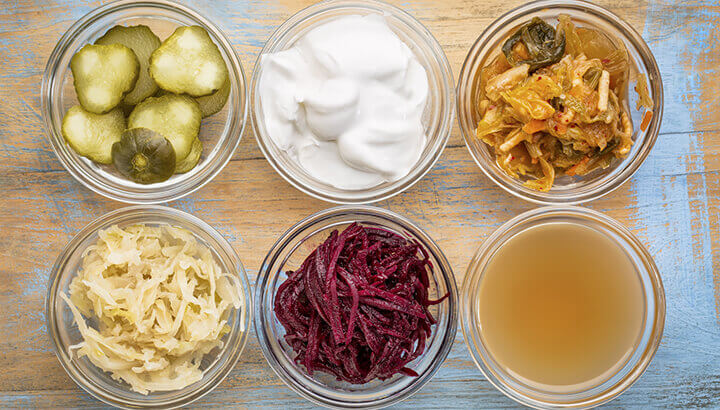
Vaginas can be a touchy subject — even though all of us ladies have ‘em. When you suspect that something may be wrong, it can be challenging to seek advice. Of course, the Internet has been a saving grace in many ways, but it’s also a double-edged sword. The plethora of information available isn’t always the most accurate.
Some will head to Google to self-diagnose, only to end up having a panic attack when they see some symptoms that match their own. Before we dive into the wonderful world of vaginas, I just want to remind you that doctors, and more specifically gynecologists, have seen a whole lot of “lady parts” in their day. You may be embarrassed, but for them, it’s just another day at the office. Please, if you are worried that something is abnormal — go get it checked out. Don’t put these things off.
Now that we have that out-of-the-way, I want to focus on something that many of you may be thinking, does my vagina smell normal? Yes, we’re going to go there. Here is what you should know and what you can do about it.
Vaginal odor: what’s normal?
Let’s start off by saying, ladies, we all have our own scent. And yes, your vagina is supposed to have a smell. Although there are a number of factors that increase the intensity, some women just naturally have a stronger odor. Here are a few fast facts to know:
- Depending on where you are in your menstrual cycle, vaginal odor can differ.
- Anything from heavily sweating to changing your diet can affect how you smell.
- A consistent, mild scent is generally a sign that your vagina is healthy and has a properly balanced pH. It’s when this scent changes that you need to be more concerned. These changes can represent a short-term issue or may be a sign that something more serious is going on.
My vagina smells a bit funky
If your vagina is smelling a bit funky, it may be due to a range of possible reasons. From a vaginal yeast infection to an overgrowth of bacteria, an unpleasant scent can be both worrisome and embarrassing. Although these issues are fairly common, it’s imperative that you figure out the root cause.
While focusing on bacterial vaginosis (BV), for instance, although you may feel alone and anxious, know that around 29 percent of American women (nearly one in three) experience this overgrowth of bacteria. Basically, when the normal pH of one’s vagina is off, this encourages bacterial growth.
Although douching is a clear risk factor, diet is also an area in which women can focus on as an effective preventative measure. Within one study, published in the Journal of Nutrition, researchers observed the link between BV and key dietary factors. It was found that both glycemic load and a low “Naturally Nutrient Rich” score were associated with greater BV prevalence and persistence.
Although you need to listen to your body, abnormal vaginal conditions typically lead to a foul smell, such as a fishy odor. More often than not, if there’s an issue such as an infection, you will also experience other key symptoms — itching, burning, increased discharge and irritation.
Related: Top 4 Herbs To Fight Bacteria
How can I remedy my vaginal odor?
If you’re in the clear with your doctor but are still noticing a fairly strong scent (especially after sex or during your menstrual cycle), you can target this issue without reaching for any toxic feminine hygiene products. For some women, they can even tackle infections in the comfort of their home — here’s how.
1. Take an apple cider vinegar bath

Remember, in many cases, the smell you’re noticing is due to an imbalanced pH. Normally, a vagina’s pH is anywhere between 3.8 to 4.5 — meaning, it’s acidic. Once the pH begins to creep up, this is when your lady parts are more prone to infection and bacterial overgrowth.
Apple cider vinegar is often praised and for good reason. Offering both antiseptic and antibacterial properties, apple cider vinegar can help restore the acidity of your vaginal flora. To improve numerous aspects of your health, drink a diluted glass of apple cider vinegar (around one to two tablespoons) daily.
Even better, try an apple cider vinegar bath right before you go to bed. Here’s how to do it: Draw a warm bath and pour one to two cups of apple cider vinegar into the water. Next, soak for 20 to 30 minutes. When you’re done, rinse off with a quick cold shower to remove any apple cider vinegar on your skin.
2. Use tea tree oil
Throughout history, tea tree oil has been used based on its potent anti-inflammatory and antiseptic properties. Within one study, at 300 milligrams per milliliter, tea tree oil was able to kill all cells of Trichomonas vaginalis — a sexually transmitted infection caused by a one-celled protozoan organism.
Whether you have a yeast infection or bacterial vaginosis, source quality, organic tea tree oil. You can apply it one of two ways. First, you can add 10 to 15 drops to a warm bath and sit in this solution for at least half an hour. Or, you can add a couple diluted drops to an organic tampon. Since your vaginal lining is quite sensitive, dilute the tea tree oil in a little coconut oil prior to insertion.
3. Consume more probiotics

Although your doctor will more than likely prescribe antibiotics, this can cause a vaginal infection to actually come back with a vengeance. Sure, you’ll be killing harmful bacteria, but you’ll also wipe out friendly bacteria, encouraging overgrowth of “bad” bacteria once again.
Instead, start taking probiotics to encourage optimal balance and positive health. When you suffer from BV, for instance, your vagina is out of equilibrium, and Lactobacillus numbers are reduced. While studying the effect of probiotics, researchers found that oral administration helped restore a woman’s vagina to normal levels.
By taking probiotic capsules, this “friendly” bacteria recolonized the vagina’s microbiome, leading to a Lactobacillus-dominated state in 64 percent of the experimental group, in comparison to 13 percent of the placebo group. To increase your intake, you can also consume foods such as miso, kefir, yogurt, tempeh, microalgae, sauerkraut, pickles, and other probiotic-rich options.
Pay attention to what you’re eating
It’s also important to note, that when aiming to change your vaginal odor, pay attention to what you’re eating on a regular basis. Although certain milk products, meat, and alcohol can cause short-term varying vaginal odors upon metabolism, it’s sugar that you want to watch out for.
It’s well understood that sugar is detrimental to our health. But in terms of vaginal odor and bacteria, it is also a key food source. Whether you are suffering from a bacterial or fungal infection, a high intake of sugar can essentially provide nourishment. This can worsen symptoms.
So ladies, there you have it — a little light vagina talk to end the week. The above suggestions are great to target odor and the severity of some infections. However, you must listen to your body. If you notice that symptoms worsen or are unaffected by some of the suggested methods above, it’s imperative that you take a little trip to the doctor.
Just like your heart or liver, you only have one vagina — so take care of it!
— The Alternative Daily

